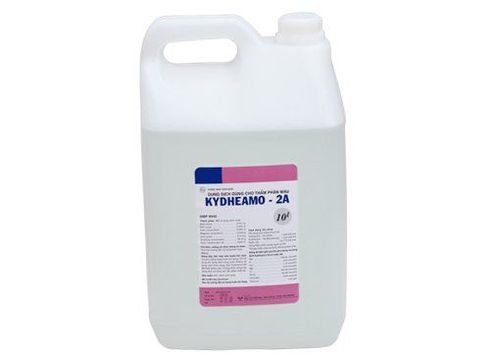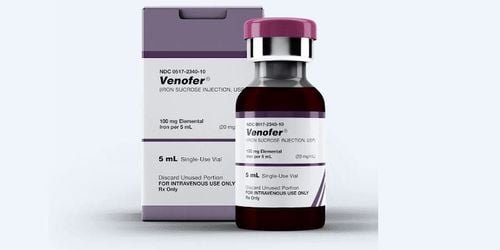This is an automatically translated article.
The kidney function of patients with chronic renal failure often does not produce enough erythropoetin, leading to anemia. Therefore, the doctor will prescribe the patient to use the drug erythropoetin to stimulate red blood cells. However, this drug needs to be used properly so as not to cause side effects.
1. What is the role of erythropoetin?
Red blood cells are produced mainly in the bone marrow. When the amount of oxygen in the body is low or the number of red blood cells decreases, the kidneys produce and release erythropoietin (EPO). This is a hormone that stimulates the bone marrow to make more red blood cells. It is also an essential hormone for red blood cell formation. Much of erythropoietin is produced by the kidneys in response to tissue hypoxia.
In chronic kidney disease, the kidneys do not make enough EPO. The body also needs iron to make red blood cells. When there is not enough EPO or iron, the person will make fewer red blood cells and anemia will progress. In kidney disease, anemia can occur even before dialysis is needed, and is very common in people on dialysis.
Anemia occurs when there are not enough red blood cells. Some symptoms that patients with anemia may experience such as fatigue, loss of appetite, feeling dizzy or headache, trouble sleeping, looking pale, cold hands and feet, ...
The doctor needs to rely on hemoglobin concentration in the blood to diagnose anemia in patients with chronic renal failure. While on hemodialysis, hemoglobin should be checked regularly. In addition, the physician may need to evaluate several factors that influence anemia in patients with chronic renal failure.
In addition, the patient may have iron deficiency anemia, which means the body has too little iron. Iron is an important mineral needed for overall health and healthy blood cells. Iron helps the body make hemoglobin.

Người bệnh có thể gặp phải một số tác dụng phụ như buồn nôn khi dùng erythropoetin
2. Why is erythropoetin necessary in patients on dialysis?
The drug erythropoetin is used in the treatment of anemia caused by chronic kidney disease. In people on dialysis, anemia is treated with erythropoiesis-stimulating drugs to make red blood cells.
Normally, the diet cannot provide enough iron to meet the needs, so the body will need more iron. In fact, once you start taking ESA, your body will make more red blood cells and iron will be used up faster. When you take ESA, iron therapy will help prevent iron deficiency, reduce the amount of ESA needed, and keep your hemoglobin in the normal range.
At the end of each hemodialysis treatment, a small amount of blood is usually left in the dialysis machine (artificial kidney). This can be a source of iron loss over time. Therefore, iron is very important in the treatment of anemia. Without enough iron, the ESA will be wasted and the patient will not reach his hemoglobin target...
When using erythropoietin drugs, the patient may experience some side effects such as: sadness vomiting, diarrhea, vomiting; chills, flu-like illness, injection site reactions, fever, peripheral edema; hyperkalemia; joint pain, bone pain, muscle pain, pain in the extremities; convulsions, headache; cough, airway obstruction; rash; thrombosis and embolism, deep vein thrombosis, thrombosis, hypertension.
On the market today there are quite a lot of drugs that stimulate red blood cells. However, erythropoiesis-stimulating drugs are not tonics, so they cannot be used on their own. Patients should only use and strictly follow the instructions and tests from the doctor. In addition, patients also need to eat scientifically and ensure nutrients to increase the effectiveness of treatment. It is necessary to monitor and treat promptly, depending on the severity of the above manifestations to consider continuing treatment or stopping treatment.
Please dial HOTLINE for more information or register for an appointment HERE. Download MyVinmec app to make appointments faster and to manage your bookings easily.













